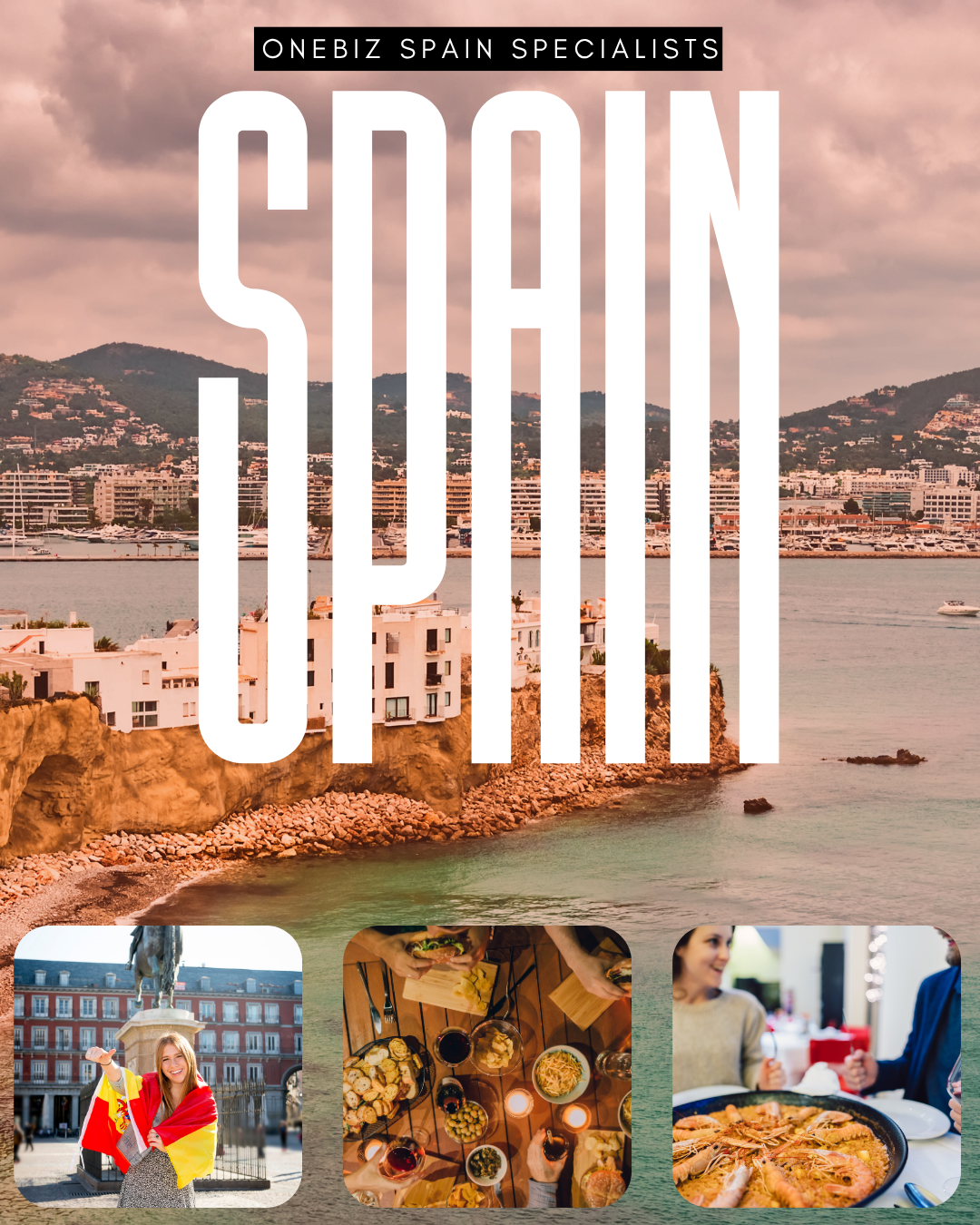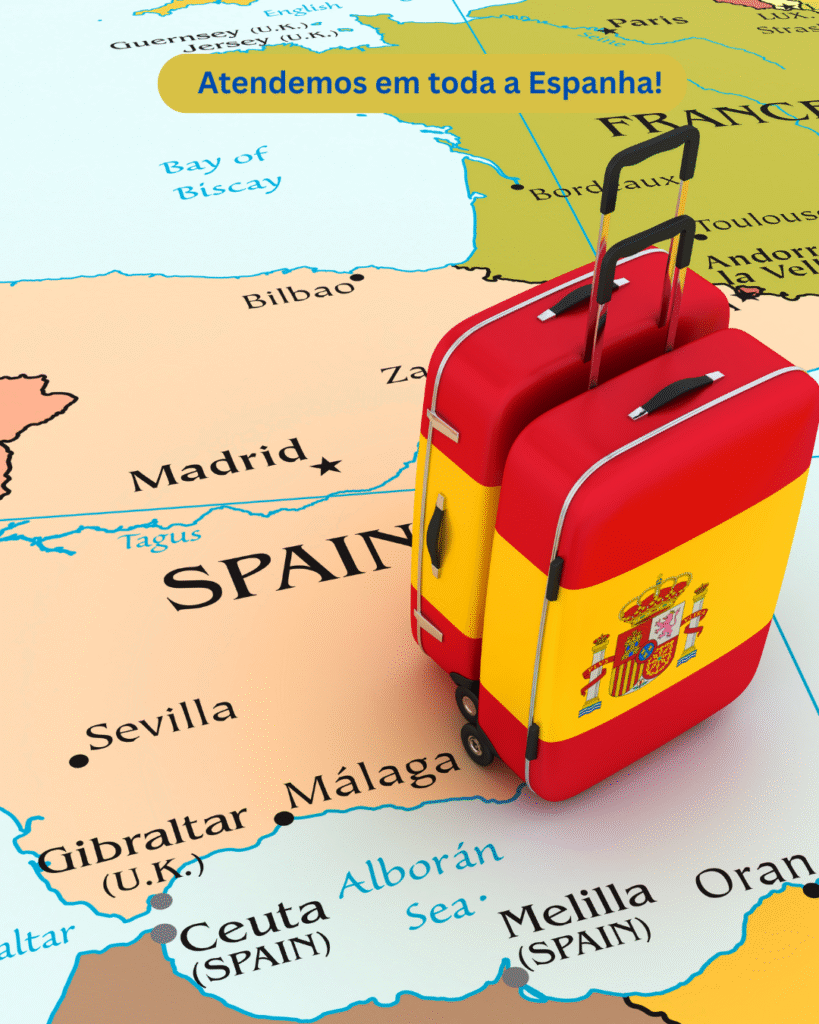The Spanish Dream Isn’t Dead—It’s Just More Complex
Let’s face it: the idea of living in Spain sounds like a dream. Sunshine, siestas, incredible food, beachside cities, charming pueblos, and a slower pace of life—what’s not to love?
But if you’re serious about making the move in 2025, you need to know this: the rules have changed, and what worked five years ago might not work now. The Golden Visa? Gone. Tourist loopholes? Closed. But don’t worry—you still have options if you approach this the right way.
I’m Antonio from Onebiz Spain Specialists, and we’ve helped hundreds of clients secure their ideal visa, avoid headaches, and start fresh in Spain. This guide will break it all down for you.
Can You Just Move to Spain? Not Without a Plan
First, yes—you can buy property in Spain as a non-resident. But buying a home doesn’t automatically give you the right to live there full time. For that, you need a visa.
The good news? Spain has multiple visas, each tailored to different lifestyles and goals. Whether you want to retire, work remotely, study, or relocate your family, there’s a path for you.
Let’s look at the best visa options for 2025 and beyond.
1. The Digital Nomad Visa – Work Remotely, Live Fully
Introduced in 2023 and updated in 2025, the Digital Nomad Visa is now the #1 choice for remote professionals.
You qualify if:
- You work remotely for a non-Spanish company or clients
- You earn at least €2,700/month (more if you bring dependents)
- You have at least 3 months of employment history or business activity
Perks:
- Apply from within Spain or from your home country
- 1-year visa, renewable up to 5 years
- Work legally, access public services
- Family can come with you
- Tax benefits under the Beckham Law
This is the ideal visa for digital marketers, developers, consultants, creatives, and anyone running an online business.
2. The Non-Lucrative Visa (NLV) – Spain’s Lifestyle Visa
This visa is designed for people who want to live in Spain but not work locally. It’s perfect for early retirees, remote workers with passive income, and families seeking a quieter life.
Requirements:
- Passive income or savings (around €30,000/year for the main applicant)
- Private Spanish health insurance
- Clean background check
What’s new in 2025: You can now include adult children up to age 25 if they are financially dependent and in full-time education. This change is a game-changer for families moving together.
NLV holders cannot work for a Spanish employer, but many use it to live affordably, settle in, and then switch to another residency type later.
3. Student Visa – Not Just for College Kids
Want to learn Spanish, earn a degree, or upskill? The student visa is a smart entry route that allows:
- Legal residence during your studies
- Part-time work (up to 30 hours/week)
- A smooth path to residency or work permits later
And here’s what most people miss: you don’t need to enroll in a university. Language academies, professional schools, tech bootcamps—they can all qualify.
If you’re under 30 and open to learning, this is one of the most flexible ways to move to Spain.
4. Employer-Sponsored Work Visas – Rare but Real
Yes, it’s possible to get a work permit if a Spanish employer sponsors you—but it’s not easy.
Why? Because the employer must prove they couldn’t find an EU candidate for the role. These are typically:
- Tech roles
- Healthcare professionals
- Engineering and STEM jobs
- Language teaching (sometimes)
If you’re in a high-demand field and fluent in Spanish, this might be worth exploring. But for most expats, it’s not the easiest first step.
5. Family Reunification – Bring the People Who Matter
If you’ve already been legally living in Spain for at least 12 months, you can apply to bring your:
- Spouse or long-term partner
- Children under 18 (or under 25 if dependent)
- Parents (under specific conditions)
Real-life tip: We’ve helped families reunite even when the kids were over 21, by documenting financial dependence and education status.
This option is key for expats looking to settle long-term.
Bonus: Can You Just Come to Spain First and Sort It Out Later?
Actually… yes. But only with certain visas.
The Digital Nomad Visa allows for in-country applications, meaning you can arrive on a tourist visa, get your paperwork in order, and apply legally without leaving.
Other visas (like NLV and Student Visas) usually require you to apply from your home country.
What About the Paperwork?
Here’s the unsexy truth: Spanish bureaucracy is no joke. You’ll need to deal with:
- NIE (foreigner ID number)
- Empadronamiento (registering your address)
- Apostilles and translations
- Proof of income, health insurance, background checks
And you have to do it in the right order.
That’s where people get stuck—and where we come in.
Final Thoughts: Your Dream Life in Spain Starts with the Right Strategy
Spain is still one of the best countries in the world for expats. But getting in—and staying legally—takes more than a plane ticket and good intentions.
At Onebiz Spain Specialists, we offer:
- Personalized visa strategy calls
- Document preparation
- In-country support
- Residency renewals and family planning
🚀 Ready to Get Started?
Book your private consultation today and let’s find the perfect path for your Spanish life.



